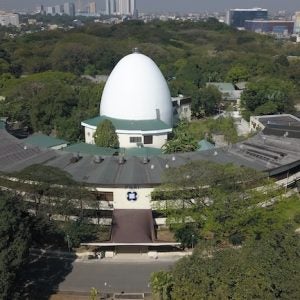 Japan’s Sapporo District Court has ordered that the reactors at the Tomari NPP should remain offline. Hokkaido Electric had been hoping to restart the plant, as surging fuel costs for thermal power plants have pushed down its revenues.
Japan’s Sapporo District Court has ordered that the reactors at the Tomari NPP should remain offline. Hokkaido Electric had been hoping to restart the plant, as surging fuel costs for thermal power plants have pushed down its revenues.
Presiding Judge Tetsuya Taniguchi cited safety concerns in the ruling, siding with a request by more than 1,000 plaintiffs from the area who raised concerns there are not sufficient safeguards to protect it from natural disasters. “A sea wall required under the nuclear regulations does not exist,” Taniguchi said. However, he dismissed the plaintiffs’ demand for decommissioning the plant, saying there is no specific circumstance that would warrant it.
All three units at Tomari NPP have pressurised water reactors. Units 1 and 2 are 579MWe and unit 3, which only began commercial operation in 2009, is 912MWe. Together they account for about 25% of Hokkaido Electric Power Co’s installed (gross) capacity, and about 40% of its total generated electricity.
The three reactors were taken offline between April 2011 and May 2012 for regular checks and have remained idle since. Hokkaido Electric applied for a restart in 2013, soon after the more stringent reactor regulations were enforced by the government following the Fukushima nuclear disaster. The Nuclear Regulation Authority (NRA) has meanwhile been assessing whether the reactors meet the new safety standards.
However, it is not clear when the assessment will end as NRA says the utility lacks experts capable of engaging in discussions on safeguards against earthquakes, tsunami and volcanoes with NRA inspectors.
In his ruling, Judge Taniguchi said the power company has "not provided evidence of the safety" of used nuclear fuel stored at the plant and that the plant does not have adequate protection against a tsunami. He added that the court had decided in January to terminate the hearing as the utility was not expected to be able to provide evidence for its claims in the foreseeable future. However, Hokkaido Electric Power said it cannot accept the ruling and will "promptly" file an appeal. The company said in a release that it had repeatedly explained to the court the safety of the plant from both scientific and technical standpoints.
Earlier, other district courts ordered the suspension of the Ohi nuclear NPP’s units 3 and 4 units in Fukui Prefecture (May 2014), and Tokai unit 2 located in Ibaraki Prefecture (March 2021). However, the order on the Ohi plant was subsequently overturned by a high court and the Tokai 2 case is still pending. As of April, 34 lawsuits are being fought over nuclear plants at district courts and high courts across Japan.
The court ruling on Tomari NPP cannot force the plant to halt operations unless it is finalised at a higher court, but it could impact the ongoing assessment by the NRA. The lawsuit was filed in 2011 and dragged on as Hokkaido Electric repeatedly failed to argue its case with credible documentation. The court abruptly ended the hearings in January, despite the utility’s earlier pledge that it would prove the plant’s safety by February.
Image: Tomari nuclear power plant in Japan (Credit: Kyodo)






